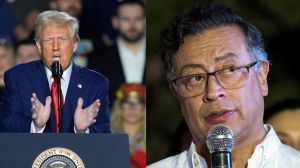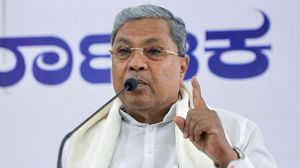Gyanendra does not represent us: Nepal parties to tell Annan
King Gyanendra faces the prospect of receiving a markedly less-than-eager welcome from the international community on his arrival in New Yor...

King Gyanendra faces the prospect of receiving a markedly less-than-eager welcome from the international community on his arrival in New York to address the United Nations General Assembly on September 16.
Seven pro-democracy parties at a meeting in Nepal on Sunday have decided to write to UN Secretary-General Kofi Annan, saying the King is an 8216;8216;autocrat and does not represent Nepal, its people and the Government legitimately8217;8217;.
The all party meeting was followed by a massive demonstration in defiance of the prohibitory orders around Basantpur area, with over a hundred participants including former Prime Minister G P Koirala sustaining minor injuries as police resorted to lathicharging and lobbed teargas shells. More than 60 demonstrators were arrested.
The keenness of Nepal8217;s political parties to see Gyanendra being given a hard time at the UN comes almost as an endorsement of the appeal by the Communist Party of Nepal-Maoists CPNM for a joint struggle to establish a 8216;8216;democratic republic8217;8217;.
A decision was also taken to organise a massive protest rally on September 98212;the day Gyanendra is scheduled to leave for Germany en route New York. UN Secy-Gen Kofi Annan is understood to have his own reservations about the King, especially as the latter ignored calls to effect a return to democracy in Nepal at the earliest. Annan had also sent Lakhdar Brahimi, his special emissary to Nepal, in July, for an assessment of progress made. However, all that Gyanendra changed was his council of ministers, which he expanded, bringing aboard an ex-convict and a loan defaulter8212;actions the UN viewed as acts of contempt.
Meanwhile, the Maoists8217; unilateral ceasefire8212;engineered critically to build world opinion against the King8212;failed to elicit a response from the government.
- 01
- 02
- 03
- 04
- 05































